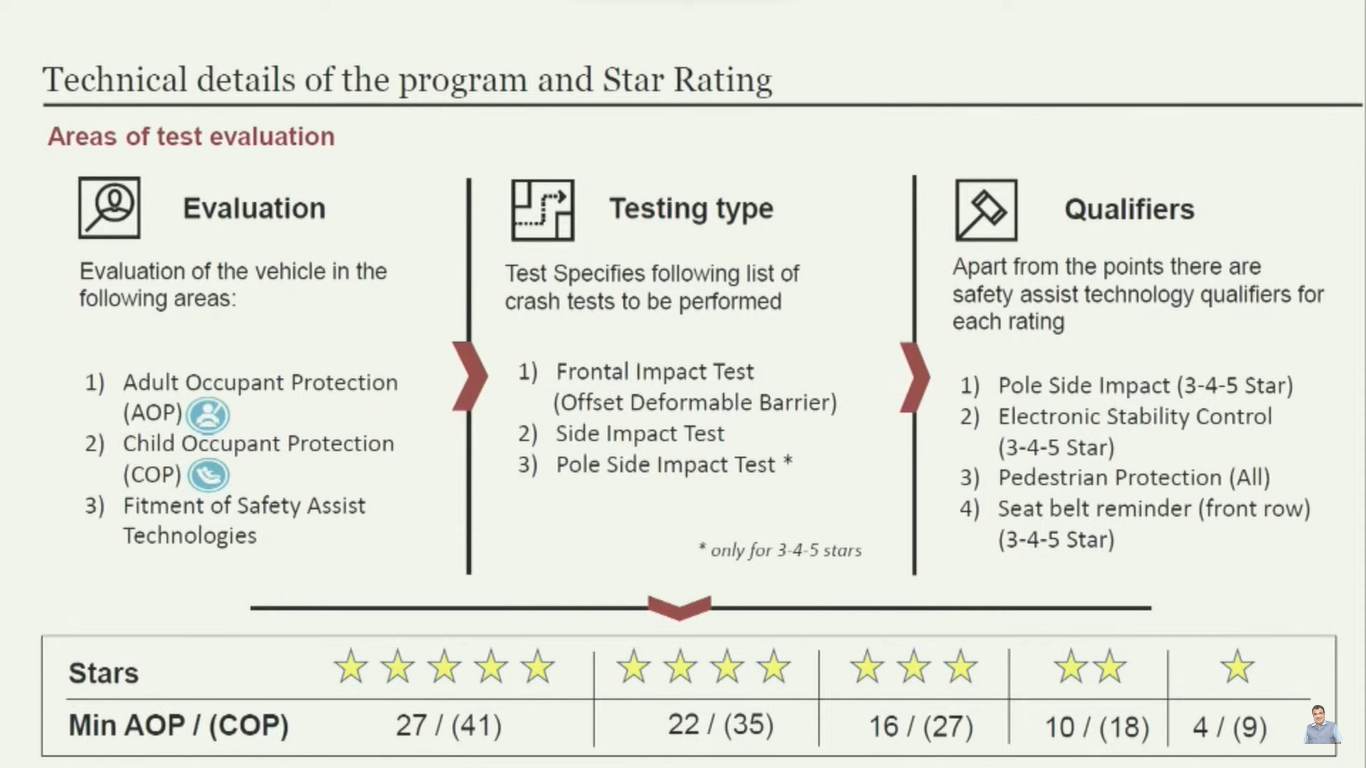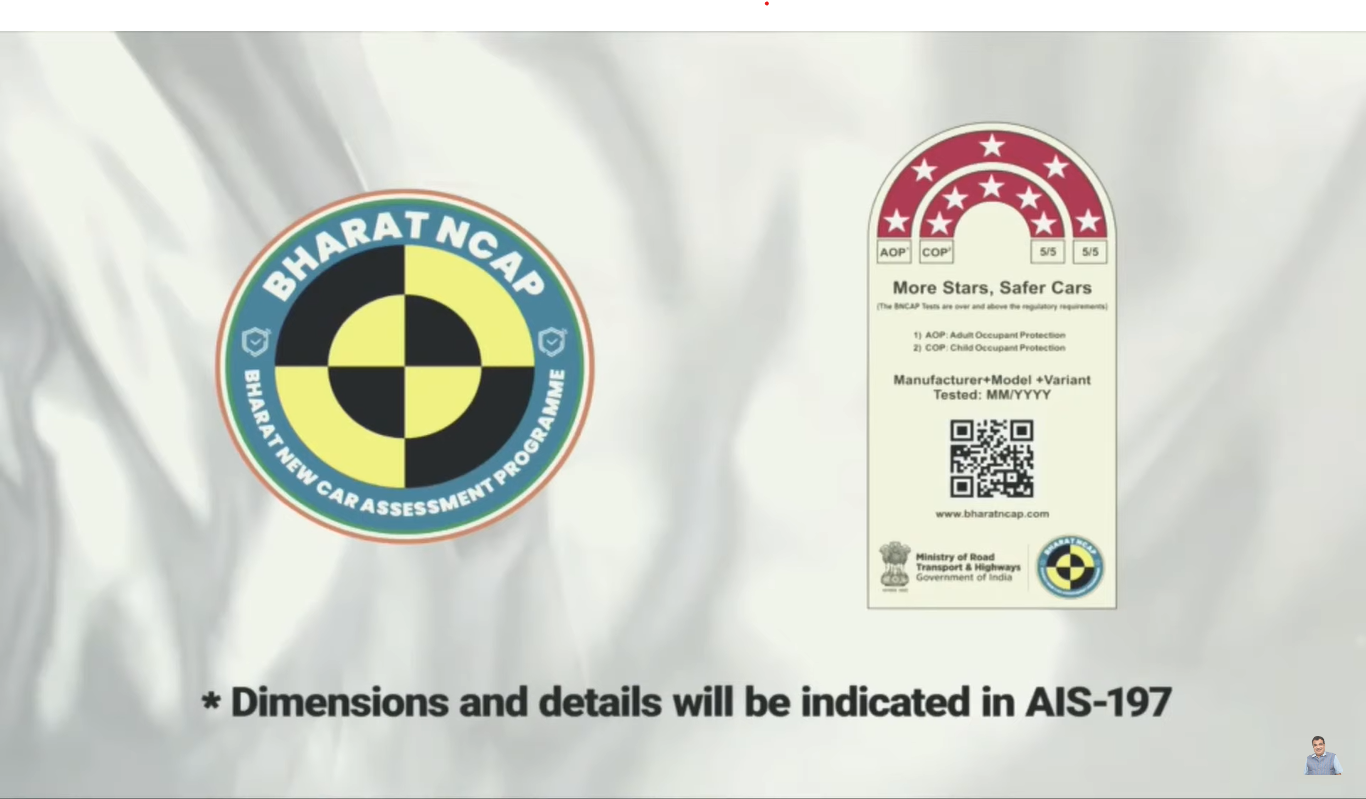Bharat NCAP Vehicle Safety Programme Launched; Over 30 Models Already Nominated For Testing

Highlights
- Bharat NCAP (BNCAP) ratings will be awarded on adult and child occupant protection scores, as well as fitment of safety assist tech.
- Over 30 made-in-India models have already been nominated for testing.
- Cars tested under the programme to bear BNCAP logo and a sticker denoting its rating.
In a monumental move for improvement of road safety, the Indian government has today launched the long-awaited Bharat New Car Assessment Programme (BNCAP). As mooted previously, the BNCAP will become operational from October 1, 2023 onwards, with the road transport and highways ministry (MoRTH) confirming the final stakeholder consultations have been completed, and that most components needed to operationalise BNCAP are in place. Over 30 models have already been nominated for BNCAP testing by their respective manufacturers, said road transport minister Nitin Gadkari, without naming the manufacturers or the models. Having a car tested abroad cost roughly Rs 2.50 crore, but a BNCAP test will cost Rs 60 lakh, outlined Gadkari.
Also Read: Maruti Suzuki Makes ESC Standard On Most Models In Light Of Bharat NCAP Rollout

Vehicles will be subjected to three impact tests, and will receive ratings ranging from one star to five stars.
BNCAP test protocol draws heavily from Global NCAP and Euro NCAP standards. Tested vehicles will be awarded star ratings ranging from a minimum of one star to a maximum of five stars. All vehicles will be judged on three parameters – adult occupant protection, child occupant protection and fitment of safety assist technologies. The crash tests will include a frontal impact test (crashing the vehicle into an offset deformable barrier at a speed of 64 kmph), a side impact test (conducted at 50 kmph) and a pole side impact test (compulsory for vehicles to achieve a rating of 3 stars and above). Vehicles will need to secure a minimum of 27 points on adult occupant protection, and 41 points on child occupant protection, in addition to having electronic stability control (ESC) as standard, in order to secure a full five-star rating.
As per the ministry, the infrastructure (including a dedicated office and preparation of testing agencies) for BNCAP is ready, as is the requisite manpower and the final notification, which is yet to be released. The government is still finalising the IT infrastructure (BNCAP website and server) and the procedures of certification.

The logo and sticker that will be pasted onto vehicles tested by BNCAP.
To get their vehicles tested, manufacturers will have to nominate a model, after which BNCAP representatives will visit the manufacturing facility or dealer outlet of the manufacturer to select the base variant of the model through random sampling. Selected vehicles will be sent to the testing centres by the manufacturer, following which the chosen units will be subjected to crash tests. Post the BNCAP standing committee approval, the star rating and test results of the vehicle will be released by BNCAP, with the Central Institute for Road Transport (CIRT) issuing the certificate.
Also Read: Bharat NCAP (BNCAP) Vehicle Safety Tests To Be Launched On August 22
The ministry is hopeful of helping BNCAP evolve over time to include active safety technologies such as 360-degree cameras, autonomous emergency braking, lane departure warning, along with additional impact tests such as a full frontal crash test, rear impact protection and an oblique pole side impact test. In the future, BNCAP standards could evolve to include electric vehicle and alternate fuel protection risk mitigation tests.
Last Updated on August 22, 2023














